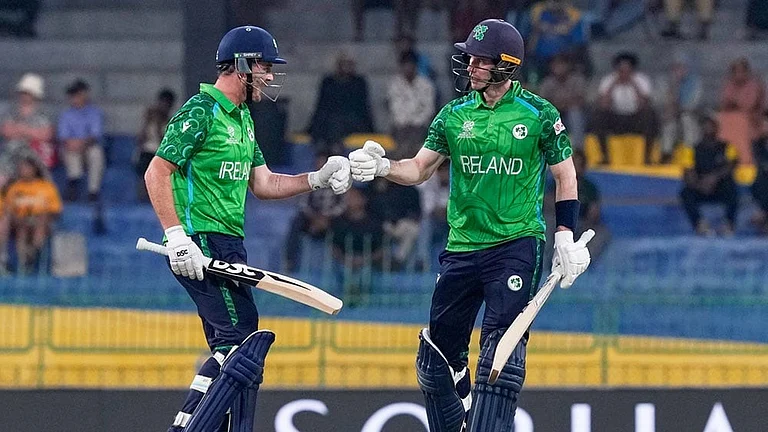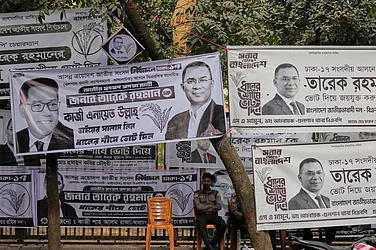Russia has for the second month in a row remained India's top oil supplier in November, surpassing traditional sellers Iraq and Saudi Arabia, according to data from energy cargo tracker Vortexa.
Increasing share of Russian crude in India's oil basket
Russia, which made up for just 0.2 per cent of all oil imported by India in the year to March 31, 2022, supplied 9,09,403 barrels per day (bpd) of crude oil to India in November. It now makes up for more than a fifth of India's oil supplies.
India's imports from Russia in November were, however, lower than the volumes bought in October.
India's appetite for Russian oil swelled ever since it started trading on discount as the West shunned it to punish Moscow for its invasion of Ukraine. As per Vortexa, an energy intelligence firm, India imported just 36,255 barrels per day of crude oil from Russia in December 2021, compared to 1.05 million bpd from Iraq and 9,52,625 bpd from Saudi Arabia.
There were no imports from Russia in the following two months, but they resumed in March, soon after the Ukraine war broke out in late February.
India imported 68,600 bpd of Russian oil in March, while it increased to 2,66,617 bpd in the following month and peaked at 9,42,694 bpd in June. But in June, Iraq was India's top supplier with 1.04 million bpd of oil. Russia, in that month, became India's second-biggest supplier.
Imports dipped marginally in the following two months. They stood at 8,76,396 bpd in September before rising to a record 9,35,556 bpd in October, according to Vortexa.
According to Vortexa, India imported 8,61,461 bpd of oil from Iraq in November and 5,70,922 bpd from Saudi Arabia. The United States was India's fourth largest supplier at 4,05,525 bpd.
We buy oil where we get the best deal: Jaishankar
The Indian government has been vehemently defending its trade with Russia, saying it has to source oil from where it is the cheapest. The imports in November were made ahead of a price cap agreed by the EU on Russian seaborne oil. But, the government has indicated that oil companies will continue to buy oil from Russia outside the price cap.
External Affairs Minister S Jaishankar on December 7 told the Rajya Sabha that Indian refiners will continue to look for the best deals in the interest of the country. "We do not ask our companies to buy Russian oil. We ask our companies to buy oil (based on) what is the best option that they can get. Now, it depends on what the market throws up," he had said while replying to clarifications sought by MPs on his suo moto statement on foreign policy.
The companies will go after sources that are more competitive, Jaishankar added. "Please do understand it's not just we buy oil from one country. We buy oil from multiple sources, but it is a sensible policy to go where we get the best deal in the interests of the Indian people, and that is exactly what we are trying to do," he said.
India faces 'no moral conflict'
The sentiment was echoed by Union Minister for Petroleum and Natural Gases Hardeep Singh Puri in an interview with CNN journalist Becky Anderson last month where he asserted that there is no “moral conflict in buying Russian oil.”
Substantiating his position, Puri said that India only buys 0.2% of Russian oil. In comparison to the consumption of the Europe and the US, this is seemingly nothing. "We only brought a quarter of oil of what Europe buys in one afternoon," he added.
The Indian government has time and again defended its decision to purchase discounted Russian oil by arguing that the government is bound by its moral duty to ensure energy security for the people of the country.
A top government official on Saturday said that India can continue to buy Russian oil if it can send ships, cover insurance and devise a mode of payment.
West's sanctions on Russian oil
The executive body of the European Union has asked its 27 member countries to cap the price of Russian oil at USD 60 a barrel as part of the West's attempt to squeeze Moscow's oil revenues and limit its ability to wage war in Ukraine while keeping global prices and supplies steady.
From December 5, western shipping and insurance companies are prohibited from handling Russian oil sold above the price cap. However, ships loaded with Russian oil before December 5 and unloaded at their destination before January 19, will not be subject to the price cap.
The United States has already stopped the import of Russian gas and oil. Britain is set to phase out the oil import by end of this year and has already stopped importing gas. The EU stopped buying Russian coal and will stop the import of refined oil products from February, 2023. Notably, the EU couldn’t place a sanction on Russian gas because 40% of its requirement comes from it.
Russia voices support for India's 'independent foreign policy stance'
Western countries have periodically questioned India's decision to purchase Russian oil, with some stating that "India has chosen to be on the wrong side of the conflict."
Such criticisms have received a harsh response from the Kremlin, with the Russian Ambassador to India, Denis Alipov, voicing his support for New Delhi. In August, he said that the criticism of India by the Western countries over its import of Russian crude oil while exempting themselves from their "own illegitimate sanctions" is a reflection of their unprincipled position and double standards.
The Ambassador further said that Europe has "completely lost" its independent voice while "appeasing" the US's ambitions for power, and is now trying to sustain its economic well-being while triggering an escalation of energy prices for the rest of the globe. "For what reason should India pay for that," Alipov had asked.
(With inputs from PTI)


























